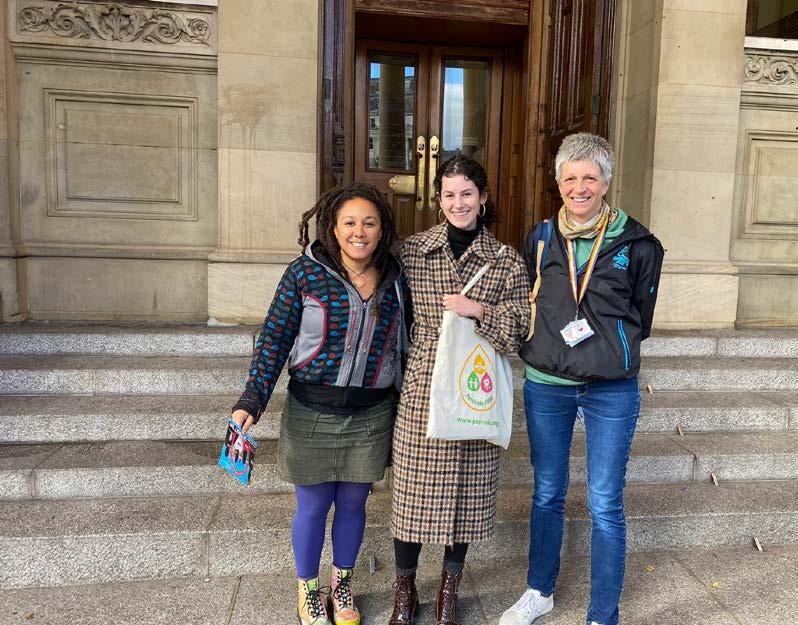
2 minute read
Take Action
Councillors and Council Officers
Countries like France, Luxembourg and Belgium are already successfully managing their urban spaces using chemical-free alternatives. Going pesticide-free is becoming more and more common across the UK, with over 100 councils that have either ended or put measures in place to significantly reduce their use of pesticides. Cities are choosing to put biodiversity and their residents’ health first – and your council can too. We offer free advice to help councils and their contractors develop adapted weed management plans, formulate Motions and write pesticide policies. We provide resources on our website and bespoke advice to guide councillors and officers in their journey towards going pesticide-free.
Change won’t happen overnight. We suggest you have a look through our general Guide for Local Authorities17, our three-year phase-out template18 , and our Guide to Alternatives to Herbicide in the Amenity Sector19 .
It is imperative that residents be brought on board using a clear communications plan. Councils have an opportunity to engage with their communities, by sharing the decision in local papers or on their website, putting up signs in pesticide-free areas and organising activities which educate the public about the health benefits of reducing our exposure to chemicals, the different plant species that they can see on their streets and the wildlife that will benefit from it.
Councils can also make the most of existing green groups and neighbourhood networks by getting them involved in weeding schemes or taking responsibility for specific tree pits and other green spaces. This not only helps the council by alleviating pressure on weeding or maintenance services, it also creates new social connections – a greener, more resilient community.
Residents
Councils should represent the wishes of their residents. You can join the Pesticide-Free Towns network by starting or joining a campaign in your local area and calling on your council to go pesticide-free.
We provide lots of free resources on our website to help you get going. To start, we recommend reading our general guide to going pesticide-free20 and subscribing to our newsletters
You can get advice by connecting with other campaigners in our dedicated Facebook group, or in our quarterly online Campaigner Catch-up events. You can also set up a one-to-one call with us to get help in devising your next steps.
Use our template to send an email to your council asking them to go pesticide-free and to allow for more wild plants. And start rallying your networks to do the same, by drawing-up posters, putting on activities to raise awareness, creating a petition, getting attention in the local media – the more people that call for change, the more likely it is to happen.
You can ask your council whether it would be possible to opt your street out of their spraying regime, and start a local weeding group to take control of how you want your roads to look.
Residents that have succeeded in getting their local council to go pesticide-free have done so in a wide range of different ways so do whatever best suits you and your local area. And don’t forget









